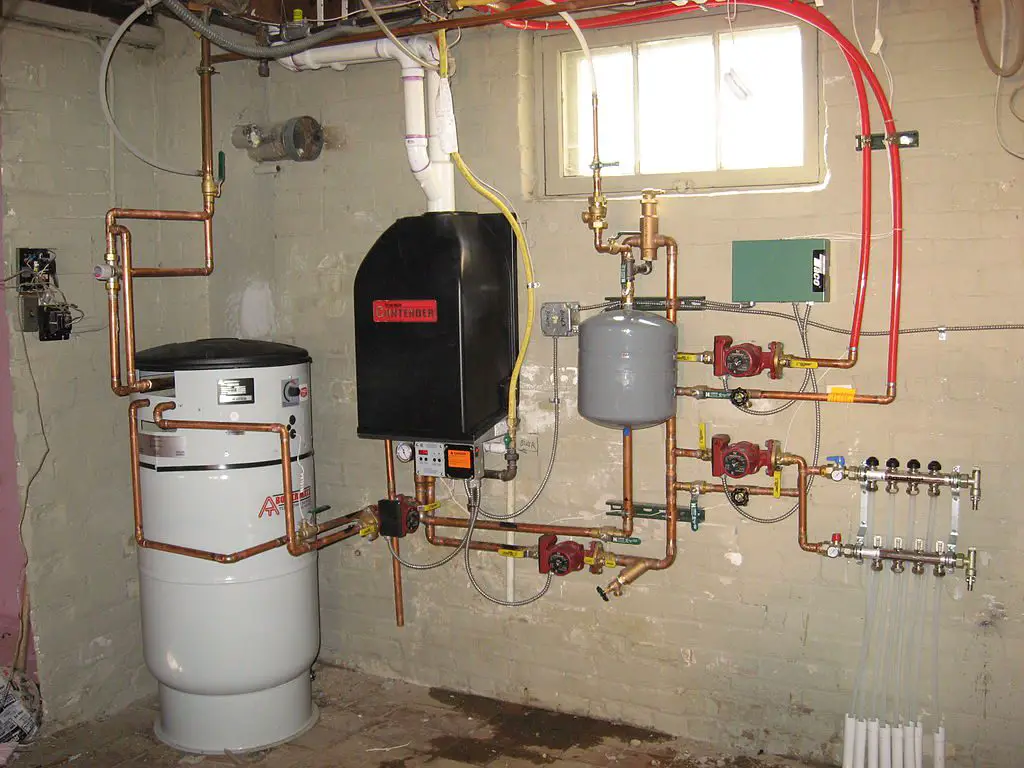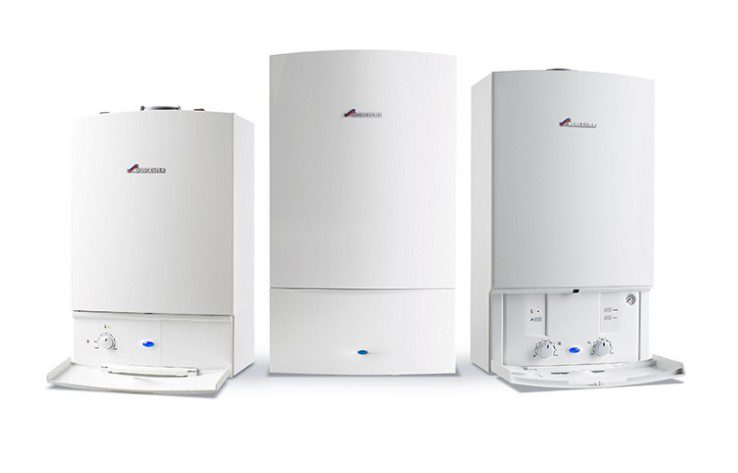Hey there! If you’re reading this, it probably means boiler inspections have revealed that you need a new boiler. But with so many options out there, it can be tough to know which one is right for your home. That’s where we come in! In this article, we’re going to give you the lowdown on how to choose the perfect boiler for your needs.
First, we’ll start by talking about why it’s important to choose the right boiler. Trust us, it’s not something you want to skimp on. Not only does the right boiler ensure that you have hot water and a warm home, but it can also help you save money in the long run. And who doesn’t love saving money, right?
We’ll also talk about the different types of boilers out there, including combi, system, and regular boilers. Each type has its own pros and cons, and we’ll help you figure out which one is best for your situation.
Finally, we’ll go over some important factors to consider when choosing a boiler, including the size of your property, your hot water demand, and your heating requirements. We’ll also touch on energy efficiency and budget, two important factors that can make a big difference in the long run.
So if you’re ready to learn everything you need to know about choosing a boiler, then let’s get started!
Different Types of Boilers
Alright, let’s talk about the different types of boilers you’ll come across when shopping around. There are three main types: combi boilers, system boilers, and regular boilers.
Combi boilers are a popular choice for smaller homes or flats because they don’t require a separate hot water tank. Instead, they heat water directly from the mains when you turn on a tap. They’re compact and can be installed in a variety of locations, including the kitchen or airing cupboard. Combi boilers are also known for being efficient, since they don’t waste energy heating water that you’re not going to use.
System boilers, on the other hand, work by heating water in a storage cylinder, which then feeds your radiators and hot water taps. They’re often a good choice for larger homes with multiple bathrooms, as they can handle higher demand for hot water. Unlike combi boilers, system boilers don’t require a separate tank in the loft, which can save space.
Finally, regular boilers (also known as traditional or heat-only boilers) are often the go-to choice for homes with an older heating system. They work by heating water in a hot water cylinder, which is then distributed around the home. They also require a cold water storage tank in the loft, which means they can take up a fair amount of space. Regular boilers are often chosen for their reliability and ability to cope with high hot water demand.
So there you have it: the three main types of boilers. Keep these in mind as we move on to the next section, where we’ll talk about the factors to consider when choosing a boiler.

Various Factors To Keep In Mind
When it comes to choosing a boiler, there are several factors you’ll need to take into account. Here are some of the most important things to consider:
- Size of the property: The size of your property will play a big role in determining the type of boiler you need. Larger homes with multiple bathrooms will require a boiler that can handle a higher hot water demand, while smaller homes may be able to get by with a more compact boiler.
- Number of occupants: Similarly, the number of people living in your home will impact the size of the boiler you need. More people means more demand for hot water, so keep this in mind when choosing a boiler.
- Hot water demand: Think about your daily hot water usage. Do you take long showers, or do you tend to take quick ones? How many people will be using hot water at the same time? The answers to these questions will help determine the size and type of boiler you need.
- Heating requirements: Some boilers are designed to work with underfloor heating or other types of heating systems. If you have a specific heating requirement, make sure you choose a boiler that can accommodate it.
- Energy efficiency: Look for a boiler with a high energy efficiency rating. Not only will this help you save money on your energy bills, but it’s also better for the environment.
- Budget: Of course, your budget will play a big role in the type of boiler you choose. Make sure you factor in not just the cost of the boiler itself, but also the installation and any ongoing maintenance costs.
By taking these factors into account, you’ll be able to choose a boiler that meets your specific needs and keeps your home warm and cozy all year round.
Understanding Boiler Efficiency
When it comes to choosing a boiler, one of the most important factors to consider is efficiency. A more efficient boiler will not only help you save money on your energy bills, but it’s also better for the environment. So, what exactly is boiler efficiency, and how can you understand it when shopping around?
Boiler efficiency is a measure of how much of the fuel used by the boiler is converted into usable heat. The more efficient the boiler, the less fuel it will need to burn to generate the same amount of heat. This is measured as a percentage, with the highest efficiency boilers being able to convert up to 98% of the fuel into usable heat.
When shopping for a boiler, you’ll come across two main types of efficiency ratings: SEDBUK and ErP. SEDBUK (Seasonal Efficiency of Domestic Boilers in the UK) is an older rating system that was used to measure the efficiency of boilers in the UK. It’s measured on a scale of A to G, with A-rated boilers being the most efficient. ErP (Energy-related Products) is a newer rating system that’s used across Europe. It measures the overall efficiency of the heating system, including the boiler, controls, and any other components.
When comparing boilers, it’s important to look at both the SEDBUK and ErP ratings, as well as any other efficiency measures provided by the manufacturer. Keep in mind that a more efficient boiler may cost more upfront, but it will save you money in the long run.
It’s also worth noting that the type of fuel you use can impact the efficiency of your boiler. For example, gas boilers tend to be more efficient than oil boilers, while electric boilers can be less efficient. If you’re considering a new type of fuel, make sure you research the efficiency of boilers that use that fuel.
Overall, understanding boiler efficiency is essential when choosing a new boiler. By selecting a boiler with a high-efficiency rating, you can save money on your energy bills and reduce your impact on the environment.
Choosing The Right Boiler
Now that you understand the different types of boilers available and what to look for in terms of efficiency, it’s time to choose the right boiler for your home. Here are some tips to help you make the best decision:
- Consult with a professional: Choosing a boiler can be a complicated process, so it’s always a good idea to consult with a professional. An experienced heating engineer can help you determine the right type and size of boiler for your home, as well as offer guidance on efficiency ratings and other factors.
- Consider your hot water and heating needs: As mentioned earlier, the size of your property, the number of occupants, and daily hot water usage will all play a role in determining the type and size of boiler you need. Make sure you choose a boiler that can handle your specific hot water and heating needs.
- Look for a high-efficiency rating: Choosing a boiler with a high efficiency rating will not only save you money on your energy bills, but it’s also better for the environment. Look for boilers with an A-rated SEDBUK rating or a high ErP rating.
- Choose a reputable brand: Investing in a quality boiler from a reputable brand can help ensure you have a reliable and long-lasting heating system. Do your research and read reviews from other homeowners to find a brand that has a good reputation.
- Consider additional features: Some boilers come with additional features like built-in controls, modulating burners, or even smart technology. Consider whether these features are important to you and whether they’re worth the additional cost.
- Factor in installation and maintenance costs: Remember that the cost of the boiler is just one part of the overall expense. You’ll also need to pay for installation, which can vary depending on the complexity of the job, as well as ongoing maintenance costs. Make sure you factor these costs into your decision.
By following these tips and doing your research, you’ll be able to choose the right boiler for your home. Remember, a quality boiler can provide reliable heating and hot water for years to come, so it’s worth taking the time to make the right decision.
Installing a New Boiler
Once you’ve chosen the right boiler for your home, it’s time to get it installed. While it’s possible to install a boiler yourself, it’s recommended to have a professional do the job to ensure it’s done correctly and safely. Here are some things to consider when installing your new boiler:
- Find a reputable installer: Look for a professional installer who has experience installing boilers and is Gas Safe registered. You can find an installer in your area by searching online or asking for recommendations from friends and family.
- Choose the right location: The location of your boiler is important for both safety and efficiency. It should be installed in a well-ventilated area, away from flammable materials, and on a wall that can support its weight. Your installer can help you determine the best location for your new boiler.
- Install any additional components: Depending on your heating system, you may need to install additional components like a new hot water tank, pump, or controls. Your installer can advise you on what components you need and ensure they’re installed correctly.
- Test your new boiler: Once your new boiler is installed, your installer should test it to make sure it’s working properly. They’ll also show you how to use the controls and provide advice on maintaining your new boiler.
- Keep up with maintenance: Regular maintenance is essential to keep your new boiler running efficiently and safely. Make sure you schedule annual servicing with a professional to keep your boiler in good condition.
By following these tips and having a professional installer handle the job, you can ensure your new boiler is installed correctly and safely.




